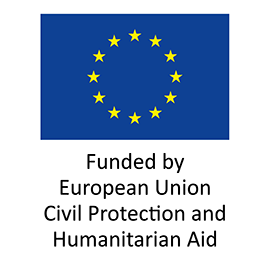One year ago, the ground-breaking Charter on the ‘Inclusion of People with Disabilities in Humanitarian Action’ was launched at the World Humanitarian Summit, where the UN Secretary General hailed it as “a ground-breaking charter that places people with disabilities at the heart of humanitarian decision-making.”
With over 150 endorsements – from States to UN agencies and implementing organisations – this Charter has the real potential to change the lives of disabled people affected by disasters around the world.
Struggling to access services
As a physiotherapist with expertise in the inclusion of disabled and vulnerable people in humanitarian response, I have had the opportunity to work directly supporting disabled people affected by various crises around the world and I know how important it is to ensure disabled people are not left behind when a crisis occurs.
1 in 7 people affected by a crisis are disabled. Sadly I know from experience that, even if they represent a large number of vulnerable people, people with disabilities and injuries struggle to access the support they need, and can easily find themselves excluded and forgotten in a crisis.
As one of Handicap International’s surveys 'Disability in humanitarian context' (pdf, 3.5Mb) highlighted, a shocking 75% of people with disabilities believe that they have insufficient access to essential humanitarian services and 50% of them lack access to specific services, such as provision of assistive devices.
Inclusion can be difference between life or death
I have countless stories of disabled people, for whom being included in humanitarian response was a question of life or death.
I remember wading through thick grey mud to speak with a blind man affected by hurricanes in Haiti. Before the hurricane he was independent and ran his own shop. But when I met him, he was housebound, unable to find his way around through the mud. I met countless other people whose wheelchairs or walking aids had been damaged, and who could no longer move around independently. Including these people in our emergency response was vital to enable them to access the essential humanitarian services they needed.
A more recent story coming from our staff in South Sudan, marked me. Our team met Uguok, 80, a single man living with a scoliosis, a congenital deformity of the spinal column. He fled from his home when the war reached Malakal town in 2013. Along with thousands of others, he sought refuge at the nearest United Nations base, which has since become a Protection of Civilians site. Having left everything behind, Uguok found that all of his everyday tasks were challenging and time consuming. In particular, he found it difficult to walk the long distances to collect his food ration.
Handicap International has a group of rehabilitation and inclusion experts called “flying teams” who can travel to remote areas to reach people who may have difficulties accessing humanitarian assistance. Our flying teams found Uguok and provided him with a tricycle that allows him to access the vital humanitarian services he needs. This tricycle was life-changing to Uguok.
Keeping up the pressure
As part of a global week of action in the run up to the 1st Anniversary of the 'Charter on Inclusion of People with Disabilities in Humanitarian Action’ Handicap International has teamed up with CBM to host an event on Thursday 18th May 2017, chaired by Beverley Warmington, Director of DFID CHASE.
The event is aimed at increasing UK mainstream NGO support for the Charter to ensure people like Uguok are included in the planning of humanitarian operations. We need to keep up the pressure to make good on the Charter’s promise to ensure people with disabilities are not left behind in a humanitarian crisis.
HI's activities in South Sudan are carried out with the support of European Union humanitarian funding.

Blog reposted from Huffington Post UK






